How Football Could Save The Lives Of Women In Brazil
As World Cup fever hits Brazil, a new football project is transforming the lives of women in the favelas – and giving them the power to rescue themselves from poverty. In the July issue of Marie Claire, we speak to those women...
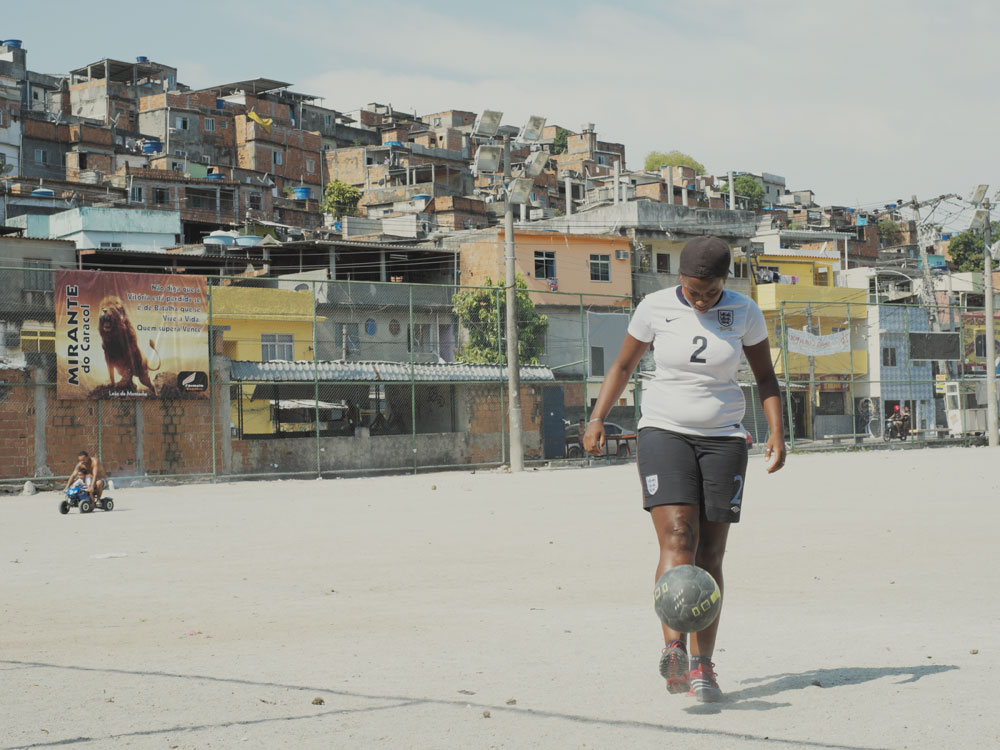
As World Cup fever hits Brazil, a new football project is transforming the lives of women in the favelas – and giving them the power to rescue themselves from poverty. In the July issue of Marie Claire, we speak to those women...
‘I’m always afraid something terrible will happen to me, even if I just walk to my local shop,’ says 25-year-old Ellen Aquino. On a short trip from her favela home to the supermarket, Ellen runs the risk of being raped or having to dodge gunfire between rival drug gangs.
We’re sitting awkwardly on her single bed, which takes up most of Ellen’s small, two-roomed shack in a run-down shanty town on the outskirts of São Paulo, Brazil’s biggest city. She shares it with her 42-year-old mother, a former crack-cocaine addict who has a tiny room next door, separated by a blanket hung between them. Born in the favela, it is likely she will die here, although she has already beaten the odds that loom over many children who become involved with drugs. Life expectancy in some favelas is just 19.
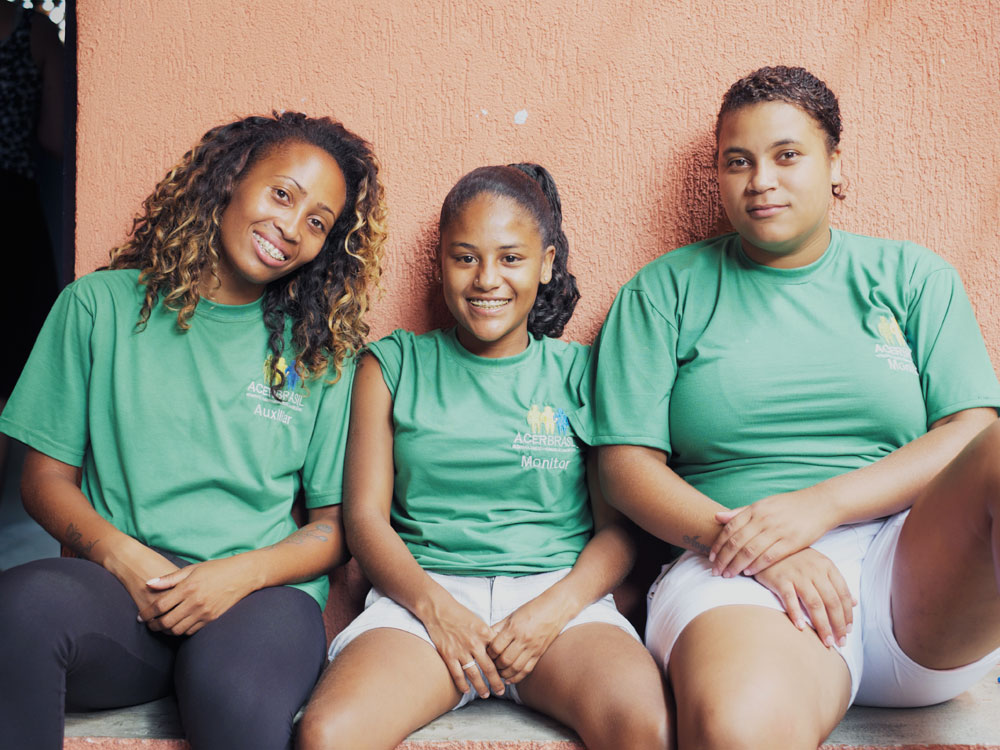
Ellen has grown up surrounded by men with guns selling drugs on her doorstep, or passed out in doorways. Many of her girlfriends born into these communities, where there is no hope of bettering themselves, have resorted to crack cocaine by the time they are teenagers. It’s the drug of choice for favela dwellers, due to its availability and dirt-cheap price – one ‘hit’ costs R$5 (just over £1.30). It’s shocking to think that the smartest districts of São Paulo are just a few miles from here, where some of the richest people in the world use helicopters to get to work or go shopping; the city has 193 heliports.
Tourists flying in for the World Cup will not witness the poverty of slums like Ellen’s as they browse the elegant neighbourhoods of Rio de Janeiro, where toned, tanned bodies are on display at Copacabana beach. But if they did, they would find communities of women just as passionate about the beautiful game, thanks to a groundbreaking new football project allowing women to escape the cycle of poverty, drugs and sexual exploitation they were born into.
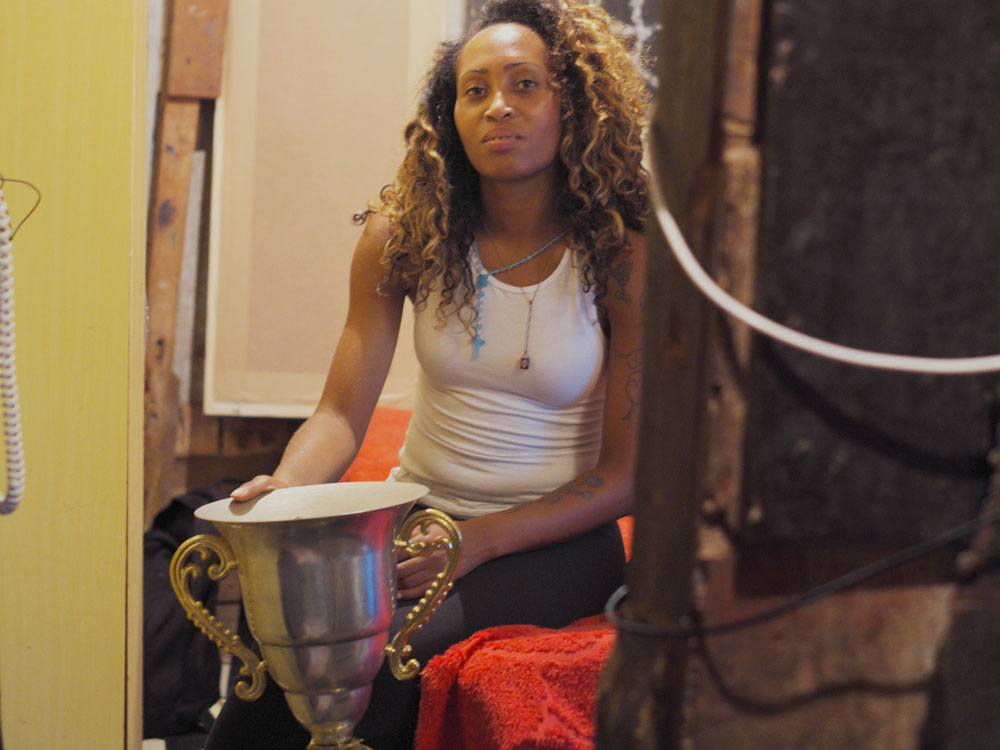
Ellen is involved in a series of educational projects funded in part by British-based charity the Action for Brazil’s Children (ABC) Trust. Through one of the trust’s projects she teaches football to younger girls in the slums, encouraging them to build life-changing skills, such as team work and confidence – an alternative value system to the criminality around them.
‘We have five different programme areas across Brazil,’ explains one project’s co-director Jonathan Fone. ‘We focus on social work, education and culture, sport, local community and economic development, and encouraging young people to develop their own initiatives.’
Celebrity news, beauty, fashion advice, and fascinating features, delivered straight to your inbox!
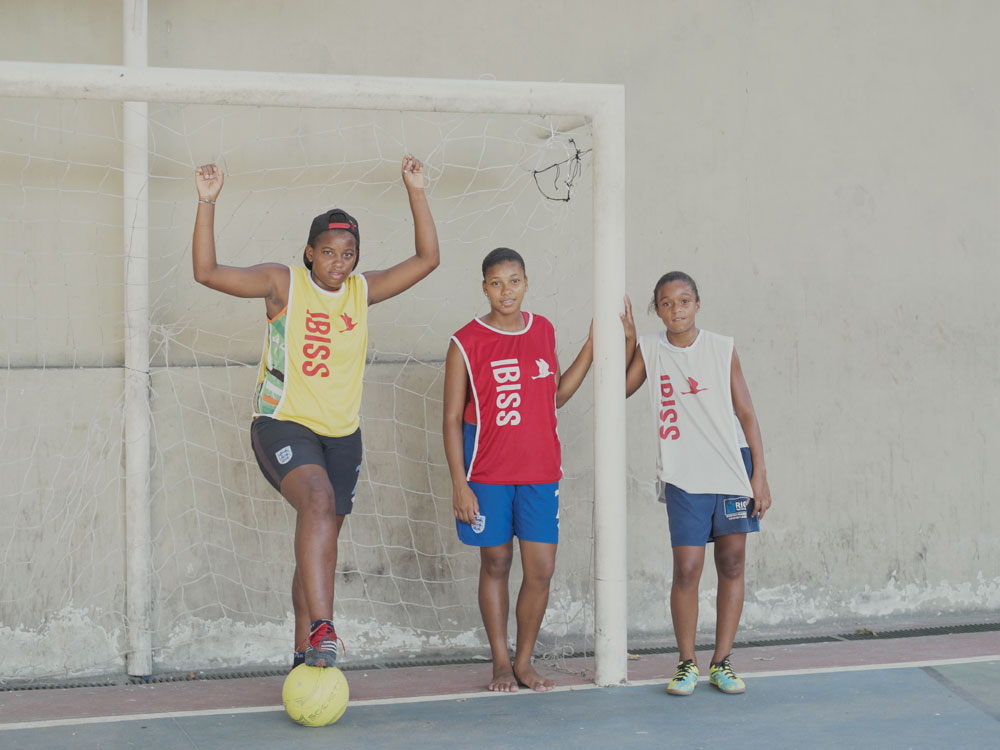
The ABC Trust, which started in 1995, has helped more than 18,000 children since its inception. It aims to keep children in school and encourage them into further education, as well as teach good parenting. ‘Sex abuse, violence, drug abuse and alcoholism are rife in 99 per cent of the families here,’ adds Fone.
Another of the trust’s projects in Rio aims to go a step further and give young women who are pregnant or mothers vocational training, and then place them in data-entry jobs. It’s a welcome escape from the brutality of everyday life, and Ingrid Luiza Da Silva, 16, who teaches football and helps run motivational classes, has seen more than her fair share of violence. Her older sister Natasha was the main girlfriend, or First Lady, of a notorious drug dealer in their favela north of Rio. Natasha, now 18, was just 15 when she was approached by a man five years older. This is a common scenario: older drug dealers often pick off the young, attractive girls in the slum to date.
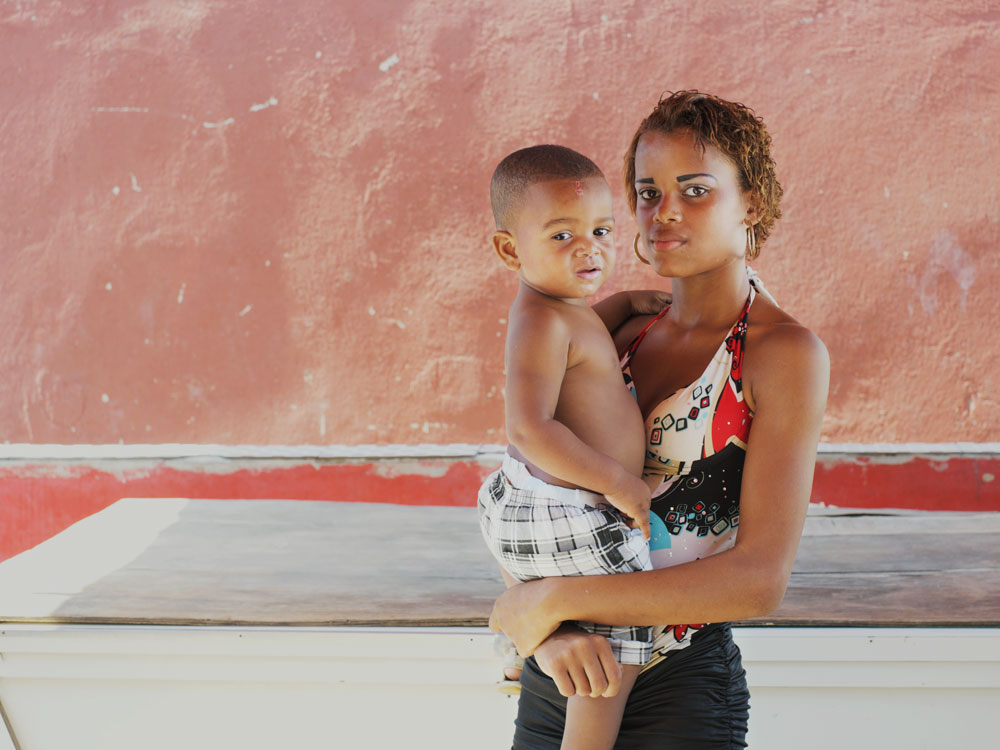
‘When you’re a drug dealer’s First Lady, it means that even if he has other women, you’re the most important, which gives you status in the community,’ explains Ingrid. ‘These First Ladies often hold real power.’
Natasha would act as her boyfriend’s lookout, and deliver drugs to customers for him – it’s easier for young women to pass unnoticed by the police. But, like many women who are used by dealers and tossed aside when they are no longer needed, Ingrid’s sister nearly paid with her life. ‘Her boyfriend found out she was cheating on him,’ she says, ‘so he tied her to the bed and left her in his house for a week, before calling the man she cheated with and telling him he was going to shoot her.’ Thankfully her family and the police were alerted and they rescued her in time. ‘Now that her boyfriend’s in prison, she has no power. She had to leave the favela because her man has informers who will tell him what’s happening here – even in jail, he’s still the boss.’
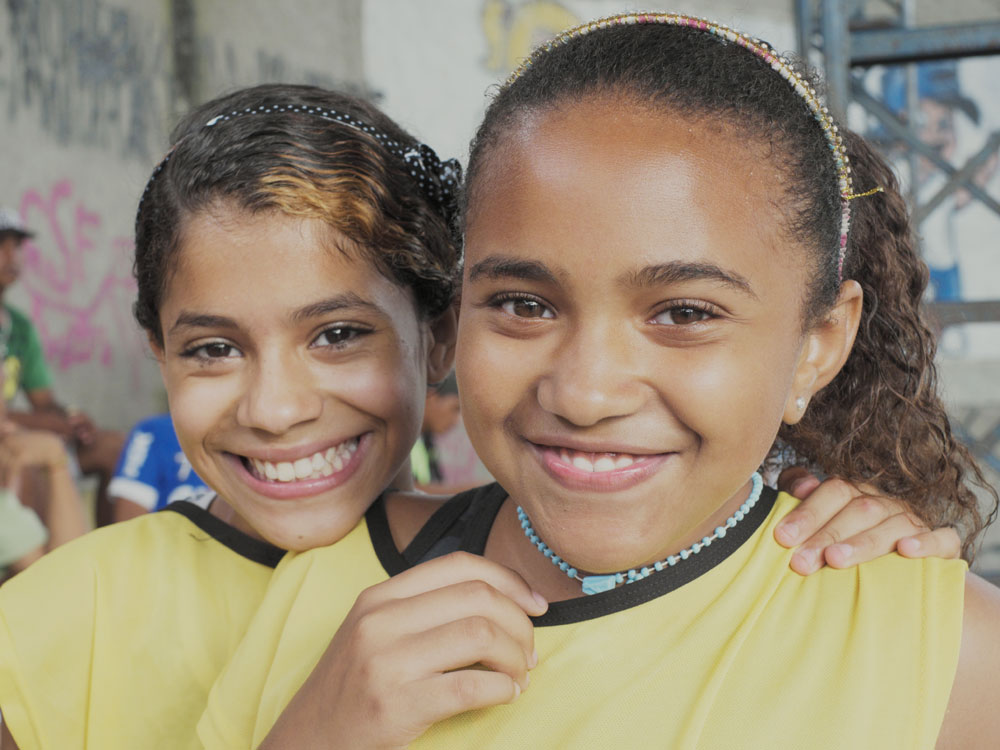
Ingrid was terrified about her own future after she gave birth to her now 18-month-old son, Eric. ‘I want him to have everything I never had; a way out from the slums,’ she says defiantly. This is a country where almost 50 per cent of children fail to even complete basic education, so opportunities to better oneself are scarce. Favela-dwellers – who make up 22 per cent of the population – are lucky to earn the minimum monthly wage (equivalent to about £180) in low-status jobs such as cleaning. ‘Through football and the support of ABC, I’m planning to break the cycle by continuing with my studies. One day I hope to become a doctor, so I can provide for my son,’ she adds.
It’s a constant struggle for women like Ingrid when the lure of drugs is everywhere and dealers rule the slums through fear. Were it not for her role football coaching younger children through the ABC Trust and receiving regular support, Thais Pavia, 18, has no doubt she could be living a life of crime, too. ‘This is a new beginning for me. I didn’t want to end up like my older sisters,’ she says. ‘One day I saw my sister Michelle stagger through the front door covered in blood. She was only 15, but she’d begun dating a drug dealer. She’d been beaten up by a group of men on the instructions of her boyfriend, who’d overheard her on the phone to another man. It turned out to be innocent, but he couldn’t be seen to lose face, so he ordered the attack. They ripped out so much of her hair she had to shave it off afterwards.’ Michelle, now 23, is addicted to crack. ‘If she carries on taking drugs, she’ll die soon,’ says Thais. It may be too late to save Michelle, but Thais has the most precious commodity: an opportunity to escape – if she stays committed.
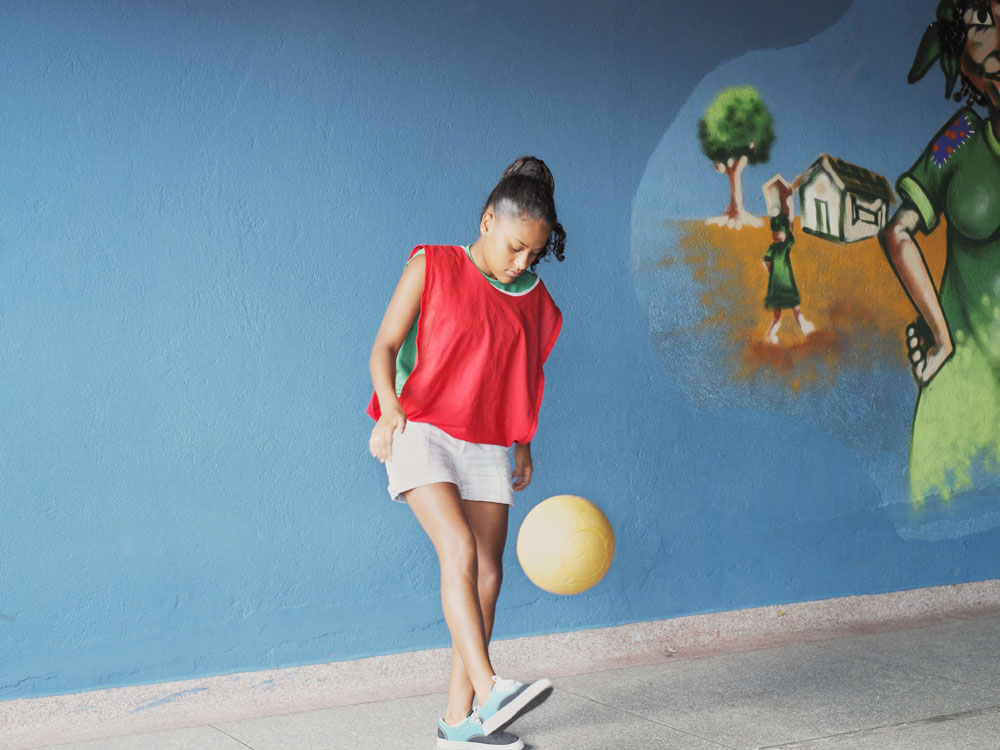
Despite having a budget of about £2.1 billion allocated to build infrastructure for the World Cup and the 2016 Olympic Games, little has trickled down to families of girls like Thais, Ingrid and Ellen (ABC is a charity funded by donations). Already the spiralling costs have resulted in riots, as people are angry that essential services are being sacrificed for sporting events. Since 2008, the government has been on a huge PR exercise to ‘pacify’ 36 favelas in Rio and dozens in São Paulo, which means sending in Brazil’s paramilitary service to ensure violent criminal factions leave the area. They are then ‘occupied’ by Pacifying Police Units, who patrol the favelas. But it has led to crime numbers soaring in Salvador, Recife and Fortaleza, as drug dealers simply relocate.
Viviane Dos Santos, a 38-year-old resident of a favela in Rio, works with one of ABC’s education projects and goes into slums to encourage younger girls to sign up for football training. Her husband was captured by a rival gang and tortured to death. ‘He was a dealer himself,’ she says calmly. ‘I’d always begged him to stop, but there were no other jobs and we had to survive. A week before he died, he bought us a little house outside the city, so we could start a new life.’ But a knock on the door put paid to that dream: several rival drug dealers masquerading as the police came for her husband. His body was found in a nearby river two days later.
With the help of projects run by ABC, women like Viviane have access to the emotional support and educational tools they need to fulfill their potential. ‘I want to go to college and travel,’ says Ellen, looking out over the boarded shop fronts of her favela. Ten years ago it would have been difficult for any woman in Ellen’s situation to even voice such a hope. Now, it might just come true.
Photographs by Kate Peters
This feature is from the July issue of Marie Claire, which us on sale now. Got a tablet? Take the new look Marie Claire wherever you go, download straight to your iPad & iPhone, Kindle (just search the store for 'marie claire magazine'), Nook or Google Nexus for only £2.99.
The leading destination for fashion, beauty, shopping and finger-on-the-pulse views on the latest issues. Marie Claire's travel content helps you delight in discovering new destinations around the globe, offering a unique – and sometimes unchartered – travel experience. From new hotel openings to the destinations tipped to take over our travel calendars, this iconic name has it covered.